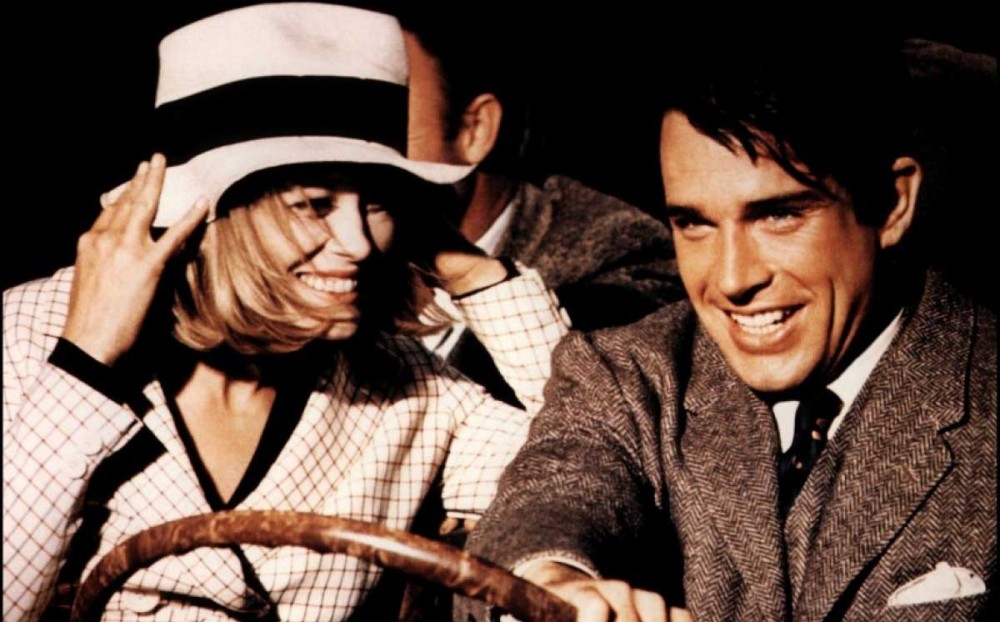BONNIE AND CLYDE
DAILY (except SUN) 12:30 2:50 5:10 7:30 9:40
SUN 1:30 3:50 6:10 8:30
Friday October 6 - Thursday, October 12
50th ANNIVERSARY
Directed by Arthur Penn
Starring Warren Beatty Faye Dunaway
(1967) “We rob banks.” Faye Dunaway’s Bonnie Parker abandons her boring waitress job to team up with Warren Beatty’s dilettantish desperado Clyde Barrow, moving from amateurish hold-ups to big-time bank robbing, and eventually hooking up with dopey pump jockey C.W. Moss (Michael J. Pollard) and Clyde’s older brother Buck (Gene Hackman) and his wife, preacher’s daughter Blanche (Estelle Parsons), and kidnapping overly-excitable Gene Wilder along the way. A watershed in American moviemaking — originally critically divided and famously condemned by The New York Times — that pushed the envelope of movie sex and violence, especially its bullet-riddled denouement. Nominated for ten Academy Awards, including Best Picture and Director, and for the five principle actors, winning for Parsons and cinematographer Burnett Guffey. Screenplay by David Newman and Robert Benton. DCP. Approx. 111 min.
A WARNER BROS. RELEASE
Reviews
“A MILESTONE IN THE HISTORY OF AMERICAN MOVIES! A WORK OF TRUTH AND BRILLIANCE!”
– Roger Ebert
“ONE OF THE MOST INFLUENTIAL FILMS EVER MADE IN AMERICA!”
– David Thomson
“By making us care about the robber lovers, Bonnie & Clyde has put the sting back into death.”
– Pauline Kael
“When Fritz Lang filmed it in 1938 (as You Only Live Once), the story had a metaphysical thrust. When Nicholas Ray filmed it in 1948 (They Live by Night), it was romantic and doom laden. But by the time Arthur Penn got to it in 1967, it was pure myth, the distillation of dozens of drive-in movies about rebellious kids and their defeat at the hands of the establishment.”
– Dave Kehr
“Half comic fairytale, half brutal fact, it reflects the essential ambiguity of its heroes by treading a no man’s land suspended between reality and fantasy. With its weird landscape of dusty, derelict towns and verdant highways, stunningly shot by Burnett Guffey in muted tones of green and gold, it has the true quality of folk legend.”
– Tom Milne, Time Out (London)
“Took an archaic genre — the 1930s gangster film — and reinvigorated it for the moods of the sixties. It was an antiestablishment picture, a love story, and a ballad for sexual fulfillment, a parable about getting people to take notice of you and being famous in America, and still it was a gangster picture. It was reaching out for everything it could get, and nothing was quite the same afterward. Sex and violence, the willingness of Miss Bonnie Parker to give good head, and the presidential smirk on Warren Beatty’s face were all smeared together in a strange triumph, all the stranger in that it was only by being shot to pieces that these two lovers really got it on together.”
– David Thomson

